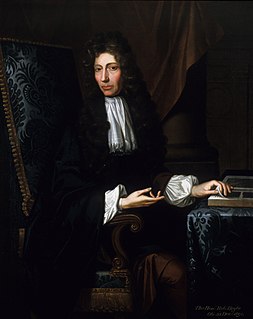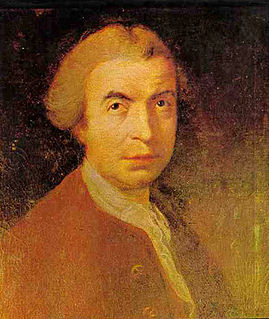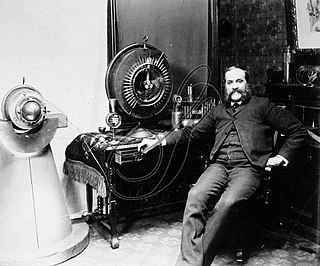A Quote by Robert Boyle
But the World being once fram'd, and the course of Nature establish'd, the Naturalist, (except in some few cases, where God, or Incorporeal Agents interpose), has recourse to the first Cause but for its general and ordinary Support and Influence, whereby it preserves Matter and Motion from Annihilation or Desition; and in explicating particular phenomena, considers onely the Size, Shape, Motion, (or want of it) Texture, and the resulting Qualities and Attributes of the small particles of Matter.
Related Quotes
The laws of thermodynamics may be regarded as particular cases of more general laws, applicable to all such states of matter as constitute Energy , or the capacity to perform work, which more general laws form the basis of the science of energetics, a science comprehending, as special branches, the theories of motion, heat, light , electricity , and all other physical phenomena.
You cannot have a thing "matter" by itself which shall have no motion in it, nor yet a thing "motion" by itself which shall exist apart from matter; you must have both or neither. You can have matter moving much, or little, and in all conceivable ways; but you cannot have matter without any motion more than you can have motion without any matter that is moving.
According to "matter-ism," matter is all that exists. The only things that are real are physical things in motion governed by natural law. That story starts, "In the beginning were the particles," or, as one famous person put it, "The cosmos is all that is, or ever was, or ever will be." No God. No souls. No Heaven or Hell. No miracles. No transcendent morality. Just molecules in motion following the patterns of natural law. This is the story that most atheists, most "skeptics," most humanists, and most Marxists believe is true.
Whatever is in motion must be put in motion by another. If that by which it is put in motion be itself put in motion, then this also must needs be put in motion by another, and that by another again. But this cannot go on to infinity, because then there would be no first mover, and, consequently, no other mover; seeing that subsequent movers move only inasmuch as they are put in motion by the first mover; as the staff moves only because it is put in motion by the hand. Therefore it is necessary to arrive at a first mover, put in motion by no other; and this everyone understands to be God.
Now the smallest Particles of Matter may cohere by the strongest Attractions, and compose bigger Particles of weaker Virture.... There are therefore Agents in Nature able to make the Particles of Bodies stick together by very strong Attraction. And it is the Business of experimental Philosophy to find them out.
So many of the properties of matter, especially when in the gaseous form, can be deduced from the hypothesis that their minute parts are in rapid motion, the velocity increasing with the temperature, that the precise nature of this motion becomes a subject of rational curiosity. Daniel Bernoulli, Herapath, Joule, Kronig, Clausius, &c., have shewn that the relations between pressure, temperature and density in a perfect gas can be explained by supposing the particles move with uniform velocity in straight lines, striking against the sides of the containing vessel and thus producing pressure.
It is seen that both matter and radiation possess a remarkable duality of character, as they sometimes exhibit the properties of waves, at other times those of particles. Now, it is obvious that a thing cannot be a form of wave motion and composed of particles at the same time - the two concepts are too different.
It seems probable to me that God, in the beginning, formed matter in solid, massy, hard, impenetrable, moveable particles, of such sizes and figures, and with such other properties, and in such proportions to space, as most conduced to the end for which He formed them; and that these primitive particles, being solids, are incomparably harder than any porous bodies compounded of them, even so very hard as never to wear or break in pieces; no ordinary power being able to divide what God had made one in the first creation.
Matter is capable of infinite subdivision...All matter is in a state of perpetual activity [motion], whether the substance under consideration be inanimate or animated, visible or invisible...There is no dividing of matter and force into two distinct terms, as they both are ONE. FORCE is liberated matter. MATTER is force in bondage.







































